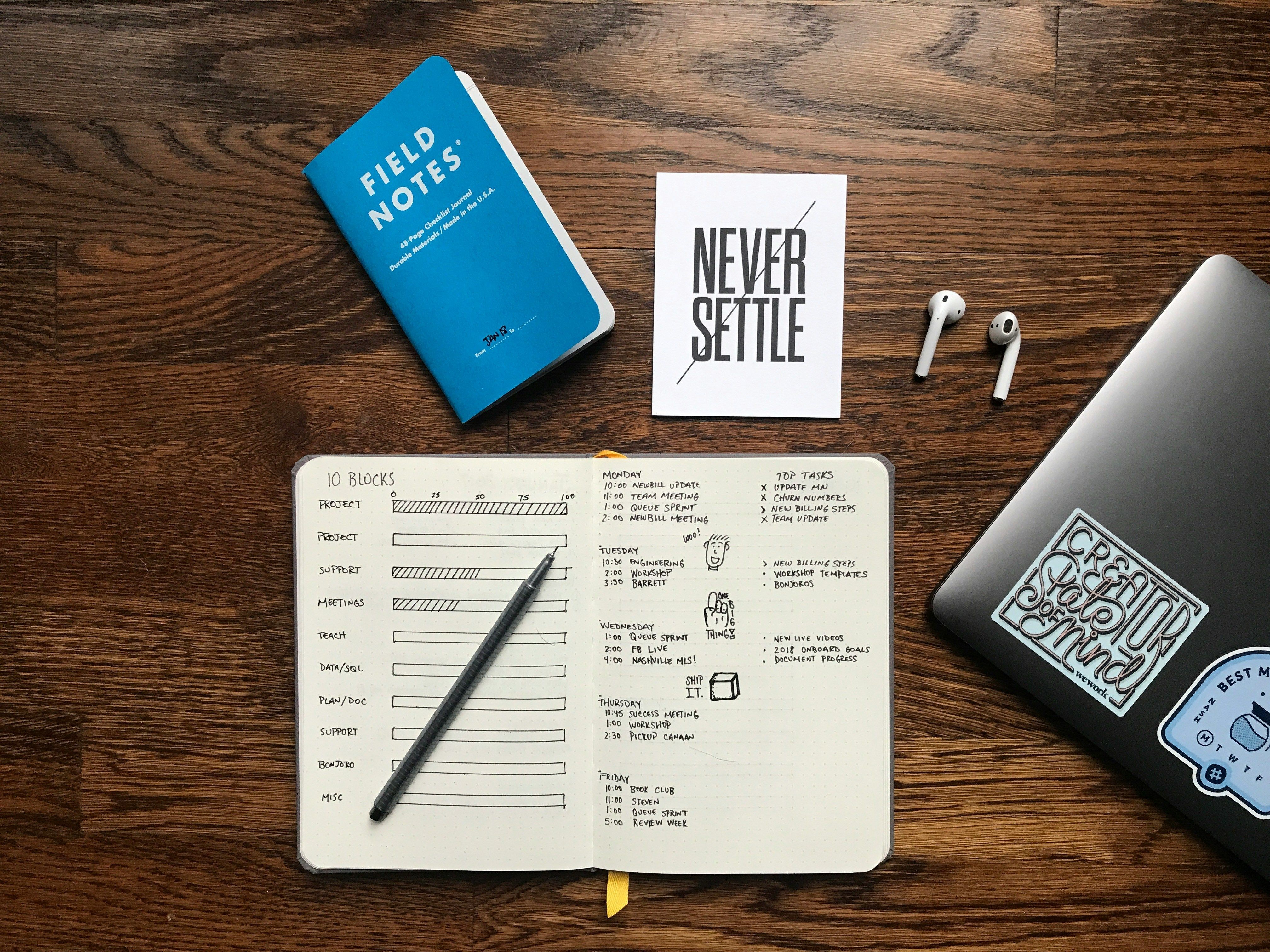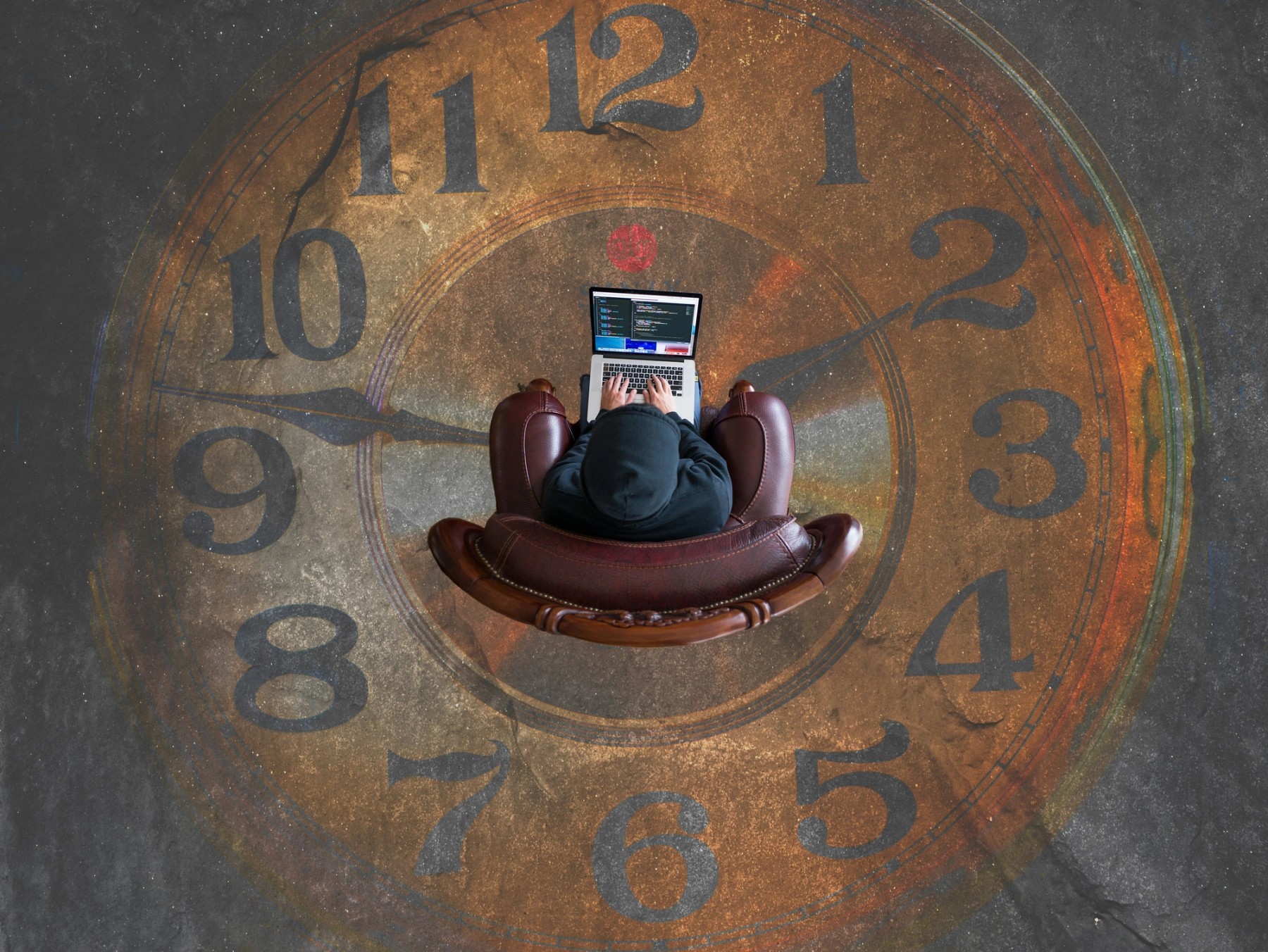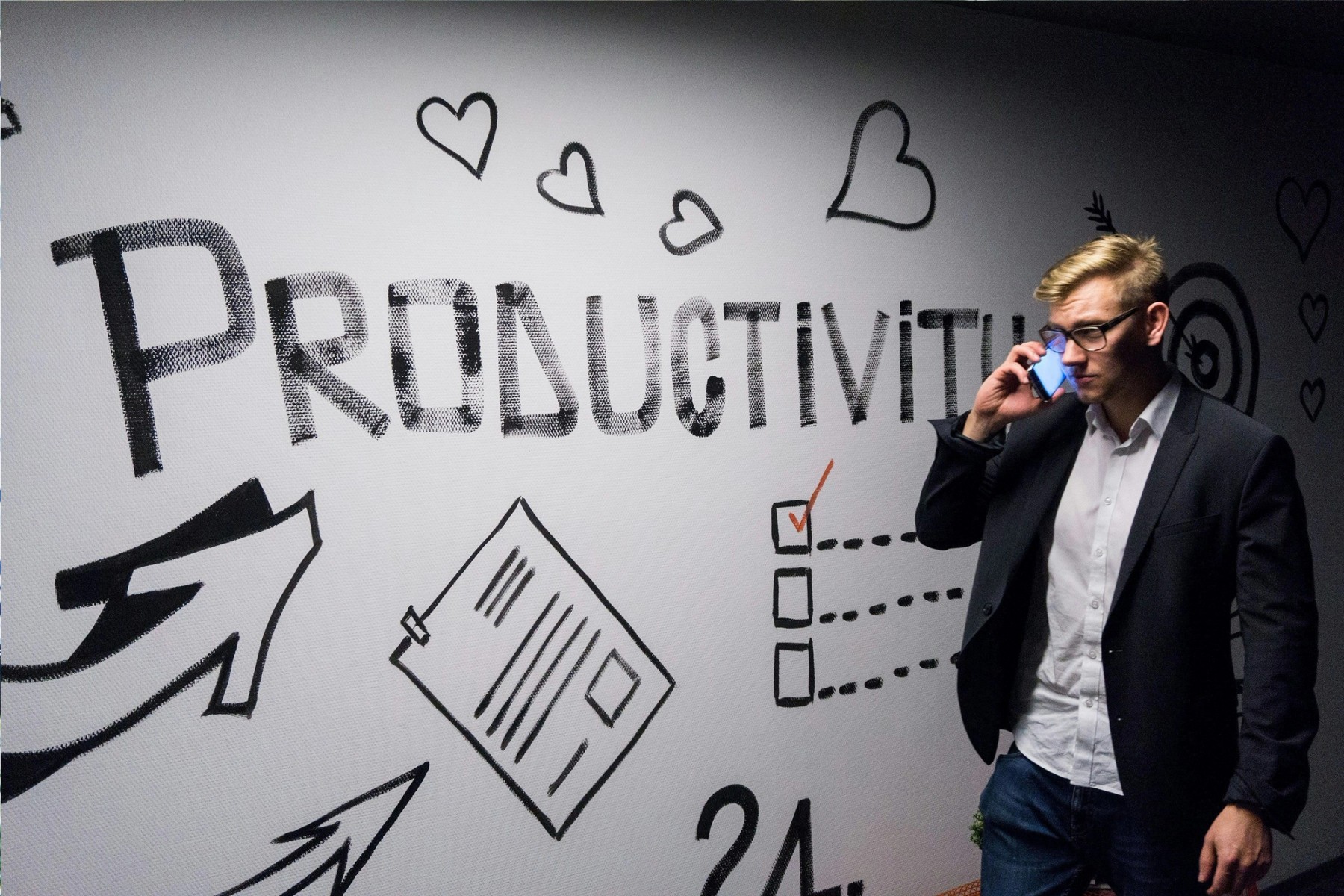Effective Time Management Techniques for Better Productivity: Proven and Smart Methods to Manage Your Time Efficiently


Time, time, time… There is no doubt that time is our most valuable resource nowadays, but managing it effectively appears to be both an art and a science.
And also, “Time is money,” they say, but really, time is even more valuable than money, because it’s the only resource you can never get back.

So... in this case, how do we manage it?
If you’re like most of us, you’ve probably tried every technique under the sun, from the Pomodoro method to time blocking...
Some of the key time management techniques we apply at WIARA include time blocking, prioritizing tasks, limiting perfectionism, and clearing chaos through regular reflection.
"Don’t count every hour in the day. Make every hour in the day count." - Alfred Binet
And also don't forget that time management is not only for work, it’s for health, balance, and creating space for innovation. Some of them work for ones, some others don’t, but how do we find what really clicks? And, perhaps more importantly, how can we apply these methods within our day-to-day work, especially in a fast-paced, high-context environment like ours at WIARA?

How We Approach Time Management at WIARA
At WIARA, we believe that effective time management is the foundation of our productivity and well-being. It’s important not only to be efficient in our work but also to preserve our mental health and make room for creativity. Many of the time management techniques we apply align with our philosophy of work, balancing between high performance and well-being, while maintaining space for innovation.
“Don't confuse activity with productivity. Many people are simply busy being busy." - Robin Sharma
When working in a fully remote setup, as we do, and probably you already know from our previous articles, time management becomes even more essential. Working from home can blur the boundaries between personal and professional life, leading to work overload if not properly managed.
That’s why we use a mix of good old-school and modern techniques to manage our time effectively, while fostering a culture that allows everyone to feel valued and productive.

At WIARATime management isn’t just about squeezing as many tasks as possible into a day. It’s about making space for creative thinking, reflective practices, and truly focusing on high-value work. We’ve discovered that managing our time well gives us the freedom to achieve more while avoiding burnout.
Time management here isn’t just a task; it's a mindset that permeates our culture, and with this week’s article, we’ll reveal and explore some proven and effective time management techniques that can truly help you not only be more productive but also feel more in control of your day. Spoiler alert: there won’t be any unrealistic hacks: just real, practical advice that works for modern work life, I promise.
Tip 1: Time Blocking: The Game-Changer

One of the most effective time management techniques we’ve adopted at WIARA is time blocking. Time blocking is a method where you allocate chunks of your calendar specifically for certain tasks or categories of tasks. It helps prevent the issue of multitasking, where the mind jumps between tasks, loses focus, and wastes time…Time blocking helps you structure your day with intentionality. It’s not about rigid schedules; it’s about organizing your day to honor your energy levels and priorities.
"Lost time is never found again."- Benjamin Franklin
A great example of how we apply time blocking is when we create dedicated blocks for meetings, focus work, and even recovery time. No distraction, no multitasking.You might be thinking, “Ok, hey, but I have a lot of small tasks that come up during the day. How can I manage those?” That's where having flexible time slots comes in. You can block out 30-minute intervals between your main focus blocks for quick tasks, email checks, and calls. This makes sure your calendar is organized but leaves enough room for spontaneity.
Why we love it ?:
Time blocking removes decision fatigue. When you start your day, you know exactly what you’re working on and when. And perhaps most importantly, it keeps you accountable to your time. For instance, if I have two hours blocked for writing, I don’t answer emails during that time. If something urgent comes up, I remind myself that I'll attend to it in the next time block and add it to my notes.

Why it works? :
Time blocking eliminates the feeling of constantly being behind. It reduces mental clutter because you know exactly what to expect each day. It creates mental clarity. And just as importantly, it allows you to respect your work and time, making it easier to say no to distractions that steal precious hours. Plus, we’re more likely to follow through with time blocks because it feels like an investment rather than a restriction. Time blocking helps us prioritize high-impact work and avoid multitasking, which has been shown to reduce productivity and cognitive performance.
Tip 2: Prioritize, Prioritize, Prioritize! : The 80/20 Rule
At WIARA, we’re all about working smart, not hard. While we are passionate about our work, we know that not every task is worth the same effort.
That’s why we embrace the 80/20 rule (also known as the Pareto Principle).
This rule says that roughly 80% of your results come from 20% of your efforts. So why focus on the remaining 80% that doesn't contribute much to the outcome?
Why it works?
The 80/20 rule works because it helps you focus on high-impact tasks that will move the needle, not just “busy work” that fills up your day but doesn’t drive progress. By making these strategic decisions, we can focus on what will truly move our business forward and avoid feeling overwhelmed by minor tasks that don’t contribute to our overall goals.
How do we apply it ?
We apply it every week by reviewing our tasks and identifying which ones will make the biggest impact. These are the ones we prioritize. For instance, if we’re rolling out a new feature, we prioritize the tasks that directly contribute to the success of that feature. These high-priority items help us avoid wasting time on low-value tasks and enable us to be more focused and efficient.
By applying the 80/20 rule, we’ve discovered that working smarter, not harder, is the key to maintaining a sustainable workload. Prioritizing ensures that we’re working on the things that make a difference, rather than spending time on tasks that could be delayed or delegated. This method doesn’t just make us more efficient and it also boosts morale because we know we’re investing our time wisely.
We’ve also learned to approach our to-do lists differently. Instead of focusing on everything we could do, we focus on what we should do. This intentional focus allows us to bring our best energy to the tasks that matter most.

Tip 3: The Pomodoro Technique: A Classic for a Reason
This one’s a classic, and it still holds up!
The Pomodoro technique involves working in short, intense bursts of 25 minutes followed by a 5-minute break. After completing four “Pomodoros,” you take a longer break of 15-30 minutes.
At WIARA, we use this method when we need to focus on a specific task but find ourselves getting distracted. Whether it’s debugging code or creating a presentation, we find the Pomodoro technique helps us stay sharp without burning out.\
During my practice, I observed that the Pomodoro technique works because it reduces the pressure to work nonstop. It helps avoid mental fatigue, giving your brain the recovery time it needs to maintain productivity throughout the day. Plus, having that structured work time can make you feel accomplished, even after just one productive burst. It’s a small win, but it builds up over the course of the day. And additionally, knowing that a break is just 25 minutes away helps keep motivation high throughout your work periods.

The idea behind Pomodoro is that you work with full focus for a short period of time, and then you allow yourself a break.
This cycle is more productive than working for hours on end without rest. You can even track your Pomodoros using an app or timer, making it a fun challenge to see how many productive bursts you can complete in a day.
And as a bonus and small challenge, you may find here and use an online Pomodoro timer to boost your productivity... starting now! :)
Tip 4: The Two-Minute Rule: The Efficiency at Its Best\
This rule is incredibly simple but incredibly powerful. If a task will take less than two minutes, just do it right away. This simple two-minute rule helps you keep things clean and organized. It prevents little tasks from lingering, cluttering your day and mental space. Plus, by getting them done quickly, you can turn your attention to the tasks that require deeper thought and concentration.

Why we like it?
We use the two-minute rule at WIARA to keep things moving smoothly. When a quick request or minor task (e.g., responding to an email, setting up a quick meeting, or filing a short document) comes up, we take care of it immediately (or almost). It’s a simple way to clear the mental clutter and focus on more important tasks.
Instead of allowing small tasks to pile up and distract you later, take care of them as soon as possible. Not only does this make your to-do list easier to handle, but it also helps maintain momentum throughout the day. It’s those little wins that help keep you moving forward. And remember, … only 2 minutes! )
Tip 5: Learning to Say “No”—Focus on What Matters
One of the most challenging aspects of time management is learning how to say “no.” We’re often tempted to take on too many tasks, especially in a collaborative environment like ours. But we’ve learned that saying no to certain things is essential to maintaining focus and energy.
At WIARA, we’re open about our limits. We assess whether a task truly aligns with our priorities, and if not, we kindly decline or delegate it. Saying no isn’t about being uncooperative; it’s about protecting your time and your mental space.

How does it work ?
By learning to say “no,” we avoid getting overwhelmed by unnecessary requests. This gives us the time and energy to focus on the tasks that matter most, and in a high-performance environment, this is crucial for ensuring that we’re not only getting things done but also getting the right things done.
Also, saying “no” helps you protect your time and mental space, which ultimately allows you to perform at a higher level. When you say yes to everything, you spread yourself too thin and lose focus. Saying no helps you stay aligned with your goals and keeps you on track.
Tip 6: Set SMART Goals: Achieving with Purpose
At WIARA, we don’t just set goals, we make them SMART. (Specific, Measurable, Achievable, Relevant, and Time-bound.) Setting SMART goals helps us clearly define what we want to achieve, how to measure progress, and the timeline for completion. This method has helped me a lot during my practice as a team manager to stay on track and prioritize effectively the tasks across the team.Setting SMART goals allows us to create clear and actionable plans. Instead of vague aspirations like “improve communication,” we’re more likely to achieve success with goals such as “Schedule weekly stand-ups with the team for progress updates, starting this Monday.” This clarity helps focus energy on specific tasks and makes it easier to avoid distractions.

Whether it’s an individual project or a team goal, make sure our objectives meet the SMART criteria. For instance, when we aim to roll out a new feature, we specify what exactly needs to be done (Specific), set a target for completion (Time-bound), and define the steps required to track progress (Measurable). We also ensure the goals are realistic within the given timeframe.
SMART goals work because they give you a clear direction and purpose. Instead of being overwhelmed by a to-do list full of ambiguous tasks, you have concrete goals with measurable outcomes. It turns time management into a structured effort rather than a guesswork process.
Tip 7: Reflect and Review: Continuous Improvement
Time management isn’t a one-time fix; it’s an ongoing process. To truly master it, we have to reflect on what’s working and what’s not, making continuous improvements.
At WIARA, we encourage regular reflection and review of our time management practices.By reviewing our time usage, we uncover patterns that either help or hinder our productivity. We can adjust our strategies for the following week; perhaps we need to reduce our meeting load or create more time for creative work.

Reflection allows us to keep our time management strategies fluid and adaptive, optimizing for better results each week.Reflection helps ensure that you’re learning from your experiences and evolving your methods. It also allows you to identify areas for improvement, rather than just continuing with strategies that may no longer be serving you. The iterative process of review and refinement ensures that your time management system continues to evolve with your needs.
For example, at the end of each week, we review how our time was spent and analyze whether we accomplished what we set out to do.
We ask ourselves: What went well? What could we have done better? We also review our use of time blocks and check if we were able to adhere to our schedule or if we were too flexible with our time. Based on this reflection, we adjust our approach for the upcoming week.
Conclusion: Time Management as a Mindset
Time management isn’t a one-size-fits-all solution. It’s a mindset, a way of approaching your day with intention, focus, and flexibility. The methods we’ve discussed today are just tools, but the real work lies in how you approach time. And do you treat it as your most precious resource? Do you protect it? Do you use it wisely?

At WIARA, we believe in creating a culture where time is respected and valued. We encourage open communication about time management and help each other stay accountable for how we spend our days. Time management is not just about getting more done; it’s about getting the right things done, in a way that supports our goals, our well-being, and our creativity.
For sure, I’ve learnt by the practice that the key to successful time management is understanding that it’s not just about ticking off tasks, it’s about creating the time and space for the things that truly matter.

And take a moment now to reflect on your time management practices. “What’s one thing you could do this week to improve how you manage your time?” Share it with a colleague and make it happen! Week after week… You will see and feel the results shortly, I promise! ;)
Further Thinking

Steady Under Pressure: Real Ways to Beat Workplace Stress (Without Losing Your Spark)

Balance at Work: Keeping Your Life Intact While Building Things That Matter

The Power of Emotional Intelligence at Work: Why It Matters Most in Tech Teams

The Power of Creativity at Work: Why It Matters and How to Grow It in the Tech world (Without Forcing It)

Remote Work: How to Find Your Rhythm & Improve your productivity (While keeping your sanity)

How to Prepare for an Interview? (Without Turning Into a Robot)

Interview Process at WIARA: What to Expect

The Top Qualities Beyond Code: What Truly Makes a Developer Exceptional — from the Inside Out

Welcome to WIARA — Where Integrity Meets Innovation and People Always Come First 💡
Further thinking

Steady Under Pressure: Real Ways to Beat Workplace Stress (Without Losing Your Spark)

Balance at Work: Keeping Your Life Intact While Building Things That Matter

The Power of Emotional Intelligence at Work: Why It Matters Most in Tech Teams

The Power of Creativity at Work: Why It Matters and How to Grow It in the Tech world (Without Forcing It)

Remote Work: How to Find Your Rhythm & Improve your productivity (While keeping your sanity)

How to Prepare for an Interview? (Without Turning Into a Robot)

Interview Process at WIARA: What to Expect

The Top Qualities Beyond Code: What Truly Makes a Developer Exceptional — from the Inside Out

Welcome to WIARA — Where Integrity Meets Innovation and People Always Come First 💡